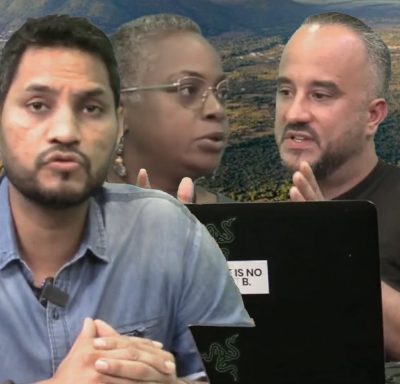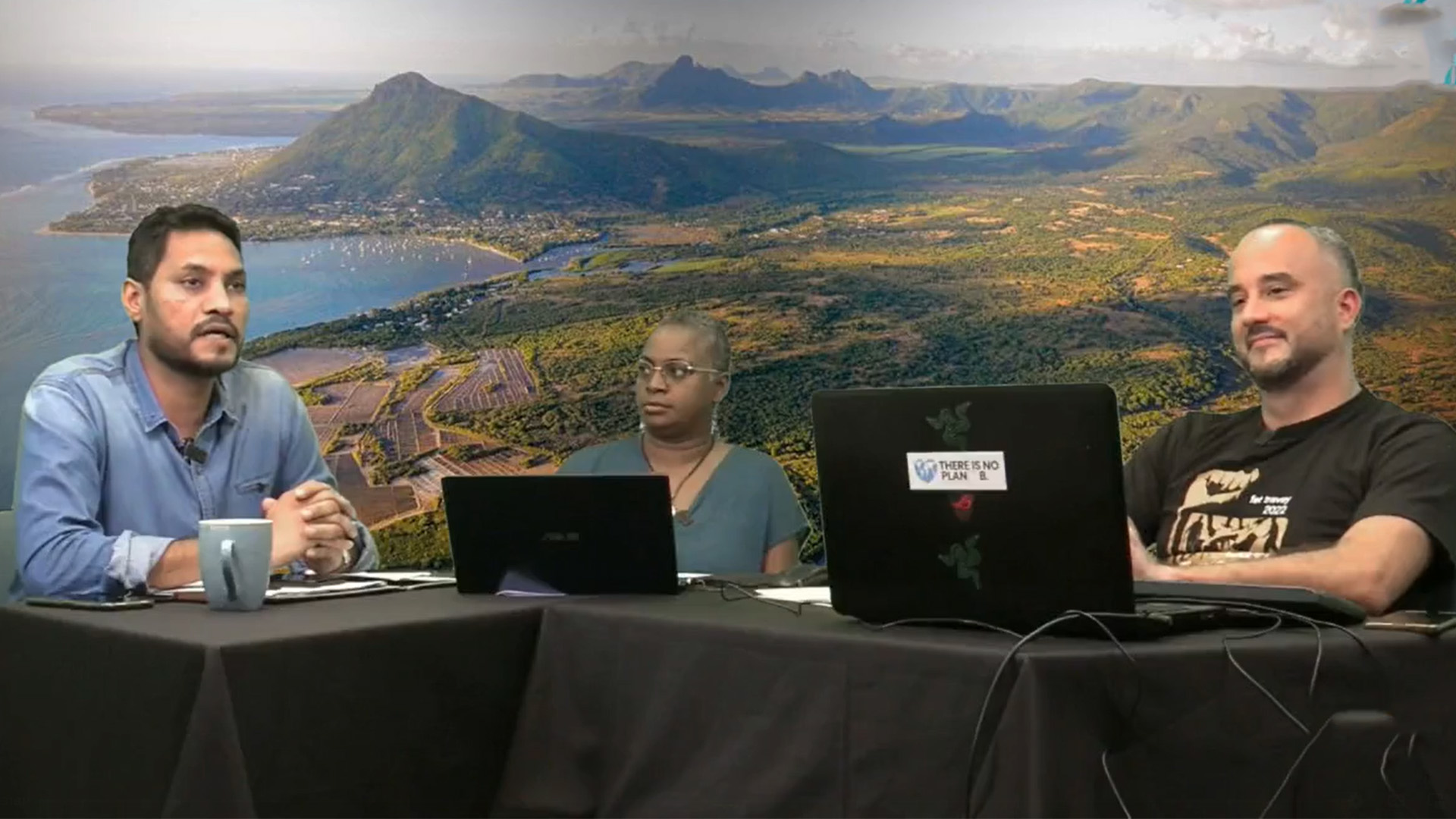Ecology is unfortunately left behind when the economy is discussed. Often, the capital granted to strengthen this field is minimal in comparisons with other domains which obtain loads of rupees to stay afloat but also to expand. Ecology should be a priority because the problem of climate change is starting to obtain magnitude. With this economic model based on Capitalism, the question of ecology must imperatively be addressed. It is in this context that Rising Ocean organized its weekly debate. On Monday June 12, 2023, David Sauvage an eco-socialist activist, member of the national committee of Rezistans ek Alternativ (ReA) was invited to discussed about the place of ecology within Mauritian society. The debate was co-hosted by Dany Marie and Ashvin Gudday.
What observation of the ecological situation in Mauritius?
Ecological awareness is beginning to grow among the Mauritian population, especially the youth. Young Mauritians are asking a lot of questions about how to combat climate change which is beginning to affect the island to a large extent. Indeed, remarks can be made because there is more and more agricultural land that is becoming arid, the rise in water levels but also the huge problem of erosion. Not to mention capitalistic maneuvers that plunder virgins forests which cause diseases and zoonoses and so on in other countries.
David Sauvage assures that there is different information that has started to enter public opinion. The youth knew how to integrate into the unprecedented context where we are now.
“The history of humanity is beginning to experience a challenge. The equilibrium of the planet, its functioning has been undermined by a capitalistic economic model and unfortunately, the planet can no longer function as it should.”
As a matter of fact, Science proves that we still have few years to try to restore this balance. To do so, all of humanity must get into motion whether in small island states or highly developed countries. David Sauvage is of the opinion that it is unfortunate to believe that being a small island, Mauritius cannot do anything to change this chaotic situation. On the contrary, the fact of being small means that Mauritius is able to initiate the much-desired change compared to these countries with high population and multiple federal judicial districts.
Changes whether from a structural point of view but also to amend the Constitution in order to come up with more in-depth laws that will really take the biodiversity and environmentally sensitive areas such as wetlands into consideration.
In addition, this is how a participatory democracy can be established. If Mauritius succeeds in doing this, Mauritians will be in capacity to get in motion so as to address deep issues such as the question of ecology, food production on a national scale and also the transition to green energy. The eco-socialist activist is confident that this move is totally feasible, given that the island’s population is approximately 1.3 million of people.
“With such a small population compared to other countries, Mauritius can become an example for other island states that will not hesitate to invest in a more sustainable economy based on the protection of natural resources. Mauritius has everything to manage to bring a new economic pillar or even an alternative to this situation. To do so, we must have a policy that does not favor neo-liberal projects to the detriment of nature.”
How the land industry poses a threat?
The land industry over the years has turned into an economic pillar for the country. However, it has begun to affect fragile ecological character since several large real estate projects are built near or even on these sites highly rich in biodiversity. Wetlands, for example, can be considered as living treasures because they are extremely abundant sites in terms of their ecosystem and their ability to protect the inhabitants. Certainly many people do not understand how these products of nature are important and why they must be protected at all costs. David Sauvage says that an education aimed at promoting the good living together with nature is crucial because that is what values healthy development.
Very often, people talk about development and unfortunately the neo-liberal model of economy has become so entrenched in Mauritian society that people directly associate development with deforestation and the massacre of nature itself. What is really the purpose of an economy? David Sauvage strongly believes that the economy itself should not help to squander natural resources.
He insists on the idea that this kind of land development such as the Project Developments Scheme (PDS) of Roches Noires, which apparently aims to promote the village by providing work as well as modern infrastructure is simply an illusion since this type of land development will not bring the real emancipation that the inhabitants truly need.
What should be done to really address the question of ecology is to come forward with a real initiative aimed at promoting nature. As a matter of fact, politics cannot be dissociated from the economy because it is the political model in which the country evolves that will decide what economy is concerned about. So moving forward with another economic model that will no longer associate ecological slaughter with development, requires the introduction of an alternative policy that understands the importance of protecting nature. Changes to put ecology at the center of the Mauritian economy can be done in several ways. First, empowering people to be the custodians of nature can help us move from the extractive model based on linear economy to a circular one which promote the regeneration of nature. Additionally, producing organic food and employing conscientious farming practices nationwide will also help make the shift. Last but not least, sites with a highly sensitive ecological character as well as the coastline must remain inalienable and therefore allow the population to become their custodians.


